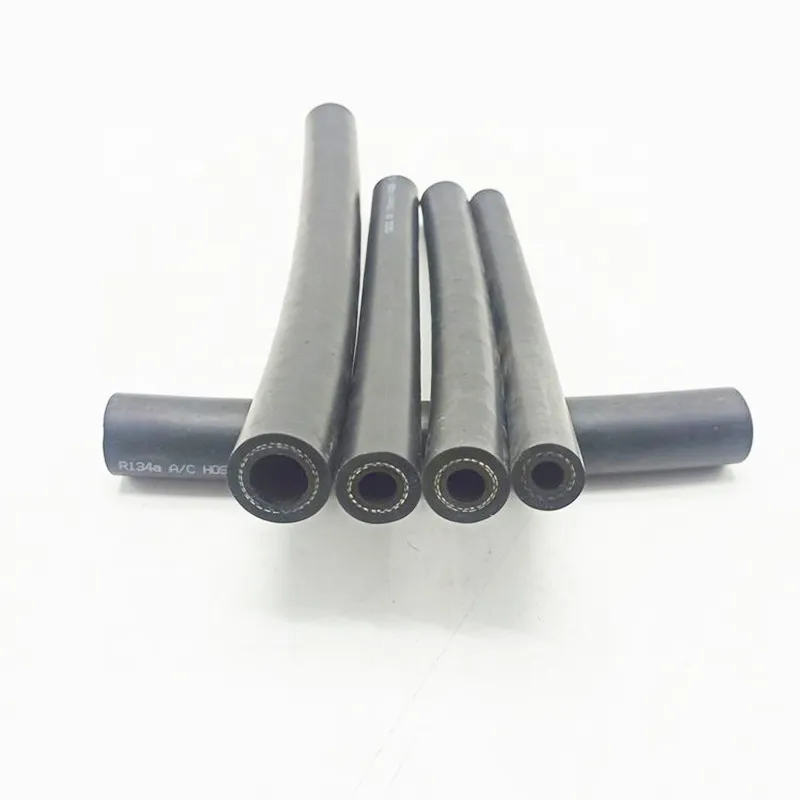Nov . 18, 2024 15:38 Back to list
Leading Manufacturers and Exporters of High-Quality Hydraulic Hoses Worldwide
Understanding the Hydraulic Hose Industry A Look at Exporters
In today’s industrial landscape, hydraulic hoses play a crucial role in various applications, ranging from construction to agriculture, and from manufacturing to automotive. As the demand for hydraulic hoses continues to grow, especially in emerging markets, the role of exporters becomes increasingly significant in connecting manufacturers with global customers. This article will delve into the hydraulic hose industry, focusing specifically on the dynamics of exporters and their impact on the global supply chain.
The Essence of Hydraulic Hoses
Hydraulic hoses are flexible tubes that carry hydraulic fluid to transmit power within hydraulic systems. Their design and construction must withstand high pressures, extreme temperatures, and harsh environmental conditions. Typically made from synthetic rubber, reinforced with polyester or steel wires, hydraulic hoses are essential in ensuring the smooth operation of machinery. The market is not only vast but also exceedingly competitive, with several manufacturers and suppliers vying for a share.
The Role of Exporters in the Hydraulic Hose Market
Exporters of hydraulic hoses act as intermediaries between manufacturers and international buyers. They have the expertise and network to facilitate trade across borders, ensuring that products meet international quality standards while adhering to various regulatory requirements. Exporters play a critical role in managing logistical challenges, including shipping and customs clearance, which can significantly impact delivery schedules.
The Growing Need for Exporters
As industries expand globally, the demand for hydraulic hoses is transcending borders. This phenomenon is particularly evident in developing countries, where infrastructural projects and industrialization efforts have surged. Exporters are thus crucial in supplying tailored solutions to meet diverse market needs. They help manufacturers penetrate new markets by providing insights into local regulations, consumer preferences, and competitive landscapes.
Quality Assurance and Standards
One significant advantage that reputable exporters bring to the table is their commitment to quality assurance. In an industry where performance is paramount, hydraulic hoses must adhere to strict international standards. Exporters often ensure that the products sourced from manufacturers comply with standards set by organizations such as ISO (International Organization for Standardization) and SAE (Society of Automotive Engineers). This focus on quality not only fosters customer trust but also enhances brand reputation in the international arena.
hydraulic hose factory exporters

Challenges Faced by Exporters
Despite the opportunities available, exporters in the hydraulic hose industry face various challenges. Supply chain disruptions, fluctuating raw material costs, and political instability in key markets can all impact their operations. Moreover, the complexities associated with different trade regulations and tariffs can deter potential exporters from entering certain markets. Thus, overcoming these challenges requires strategic planning and strong relationships with suppliers, customs authorities, and logistics providers.
Trends Shaping the Future of Hydraulic Hose Exports
The future of hydraulic hose exports is being shaped by several emerging trends.
1. Technological Advancements Increasing automation in manufacturing processes is leading to more efficient production of hydraulic hoses. Exporters need to keep pace with these technological developments to maintain competitive advantage.
2. Sustainability Initiatives With an increase in environmental awareness, many manufacturers are focusing on producing eco-friendly hydraulic hoses. Exporters can leverage this trend by promoting sustainable products to environmentally conscious buyers.
3. Digital Transformation The rise of e-commerce is transforming how exporters conduct business. Utilizing online platforms can streamline operations, offering exporters innovative ways to connect with global clients and expand their reach.
Conclusion
In conclusion, exporters of hydraulic hoses play a vital role in facilitating international trade and ensuring that manufacturers can meet the growing global demand. As the industry evolves with new technologies and changing market dynamics, it is imperative for exporters to adapt and innovate. By prioritizing quality, navigating challenges, and keeping an eye on emerging trends, exporters can continue to thrive in the competitive landscape of the hydraulic hose industry, contributing to global infrastructure development and industrial growth.
-
Best Four Steel Wire Spiral Hose Hydraulic R12 – Durable High-Pressure Hose Manufacturer
NewsJul.08,2025
-
High-Quality 1/4 Hydraulic Hose – Soft, Flexible & Durable Rubber Hoses for Industrial Use
NewsJul.08,2025
-
1 1 2 Inch Hydraulic Flexible Hose - Durable, Reliable, High-Pressure Solutions
NewsJul.07,2025
-
High-Quality 1 2 Rubber Hose - Durable, Flexible Hydraulic Solutions
NewsJul.07,2025
-
Discover SAE Hydraulic Hose Types - High Quality & Durable Hoses from Leading Factory Supplier
NewsJul.06,2025
-
High Pressure Wire Hydraulic Rubber Hose Supplier Durable & Reliable 1SN Hose Solutions
NewsJul.06,2025
